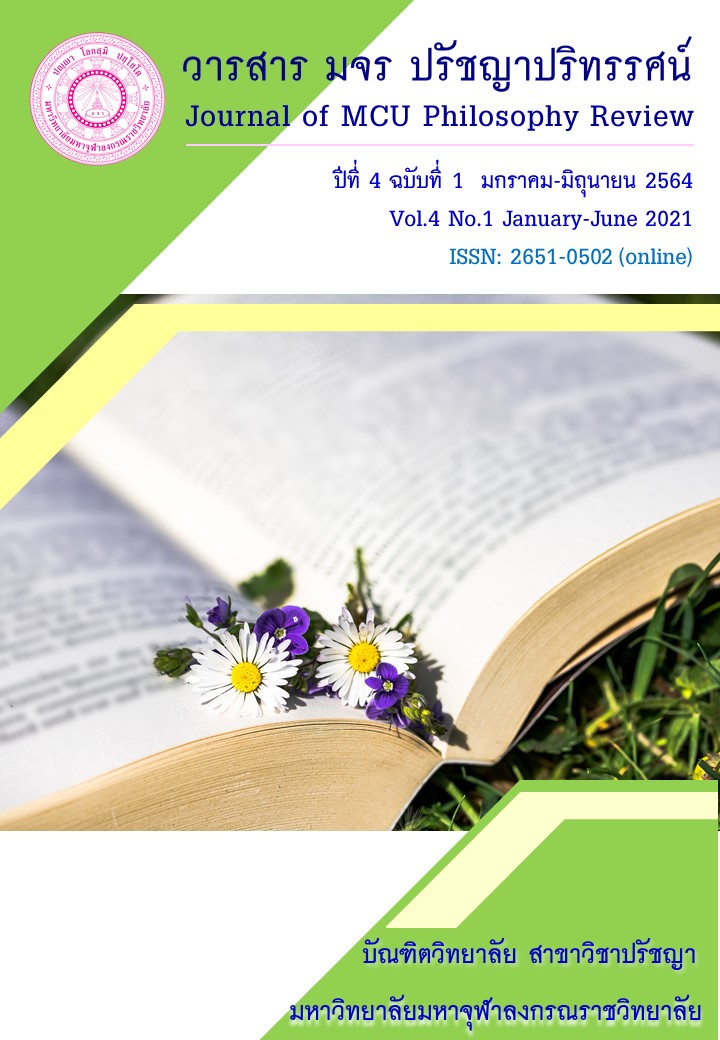The Conflict of Interest from the Decision Making of Public Administrators
Main Article Content
Abstract
The ethical problem concerning with the conflict of interest caused by the making decision of the public administrators which is done in accordance with the law and bureaucratical regulatory framework resulting in somehow bringing about certain benefit to the decision-maker and involved ones. On the one hand, the one who has made such decision argued that the act is the right one because it is legally done, on the other hand, the objection was considerably put that such an act is not morally right because it obviously leads to provide the advantage to the decision-maker and the involved one. In this respect, the public administrators argued that their decision making is absolutely right since following the framework of law and bureaucratical regulations. It is not the case as to whether or not they come to gain some benefit.
In this article, it argued in favor of Buddhist ethics that such an act is not morally right because of: 1) it is likely brought about harm to one’s mind whereby the ideal Buddhist ethics cannot be actualized and thereby facing difficulty in leading life to Dhamma, 2) it takes a great deal of advantage over others from their performance of duty which is given by a society through aiming at one’s own benefit relating to the enjoyment of the additional wealth, followers, frame or even higher position. In these matters, Buddhist ethics is of the strong view that such happiness is not certain and furthermore it possibly degrades one’s goodness which becomes the benefit in the long run derived from the higher development of mental virtues till the true happiness of life would be completely made respectively.
Article Details
บทความที่ได้รับการตีพิมพ์เป็นลิขสิทธิ์ของวารสาร มจร ปรัชญาปริทรรศน์
ข้อความในบทความที่ได้รับการตีพิมพ์ในวารสาร ถือเป็นความรับผิดชอบของผู้เขียนบทความ และข้อคิดเห็นนั้นไม่ถือว่าเป็นทัศนะและความรับผิดชอบของกองบรรณาธิการวารสาร มจร ปรัชญาปริทรรศน์
References
พระพรหมคุณาภรณ์ (ป.อ. ปยุตฺโต). (2549). พุทธธรรมฉบับปรับปรุงและขยายความ. พิมพ์ครั้งที่ 11. กรุงเทพฯ: บริษัทสหธรรมิก จำกัด.
พระธรรมปิฎก (ป.อ.ปยุตฺโต). (2541). ธรรมนูญชีวิต. กรุงเทพมหานคร: โรงพิมพ์การศาสนากรมการศาสนา.
มหาจุฬาลงกรณราชวิทยาลัย. (2539). พระไตรปิฎกภาษาไทย ฉบับมหาจุฬาลงกรณราช
วิทยาลัย. กรุงเทพมหานคร: โรงพิมพ์มหาจุฬาลงกรณราชวิทยาลัย.
วิรัช สงวนวงศ์วาน. (2550). การจัดการและพฤติกรรมองค์กร. กรุงเทพมหานคร : ซีเอ็ดยูเคชั่น.
นิพนธ์ พัวพงศกรและคณะนิพนธ์ พัวพงศกรและคณะ. (2546). นิยามและรูปแบบความขัดแย้งระหว่างผลประโยชน์ ส่วนรวมและผลประโยชน์ส่วนตน. รายงานผลการวิจัย. สํานักงานข้าราชการพลเรือน.
วศิน อินทสระ. (2549). พุทธจริยศาสตร์. กรุงเทพมหานคร: ธรรมดา.
วรรณสิทธิ ไวทยะเสวี. (2544). คู่มือการศึกษาพระอภิธัมมัตถสังคหะ ปริจเฉทที่ 2 เจตสิกสังคหวิภาค. พิมพ์ครั้งที่ 6. กรุงเทพมหานคร: หจก.ทิพยวิสุทธิ์.
สนธยา ยาพิณ. (2552). บทบาทและอํานาจหน้าที่คณะกรรมการป้องกันและปราบปรามการทุจริตแห่งชาติต่อการแก้ไขปัญหาการขัดกันระหว่างผลประโยชน์ส่วนบุคคลและผลประโยชน์ส่วนรวม. วิทยานิพนธ์นิติศาสตรมหาบัณฑิต. บัณฑิตวิทยาลัย: มหาวิทยาลัยธุรกิจบัณฑิตย์.
สมคิด บางโม. (2548). องค์การและการจัดการ. กรุงเทพมหานคร: วิทยพัฒน์.


